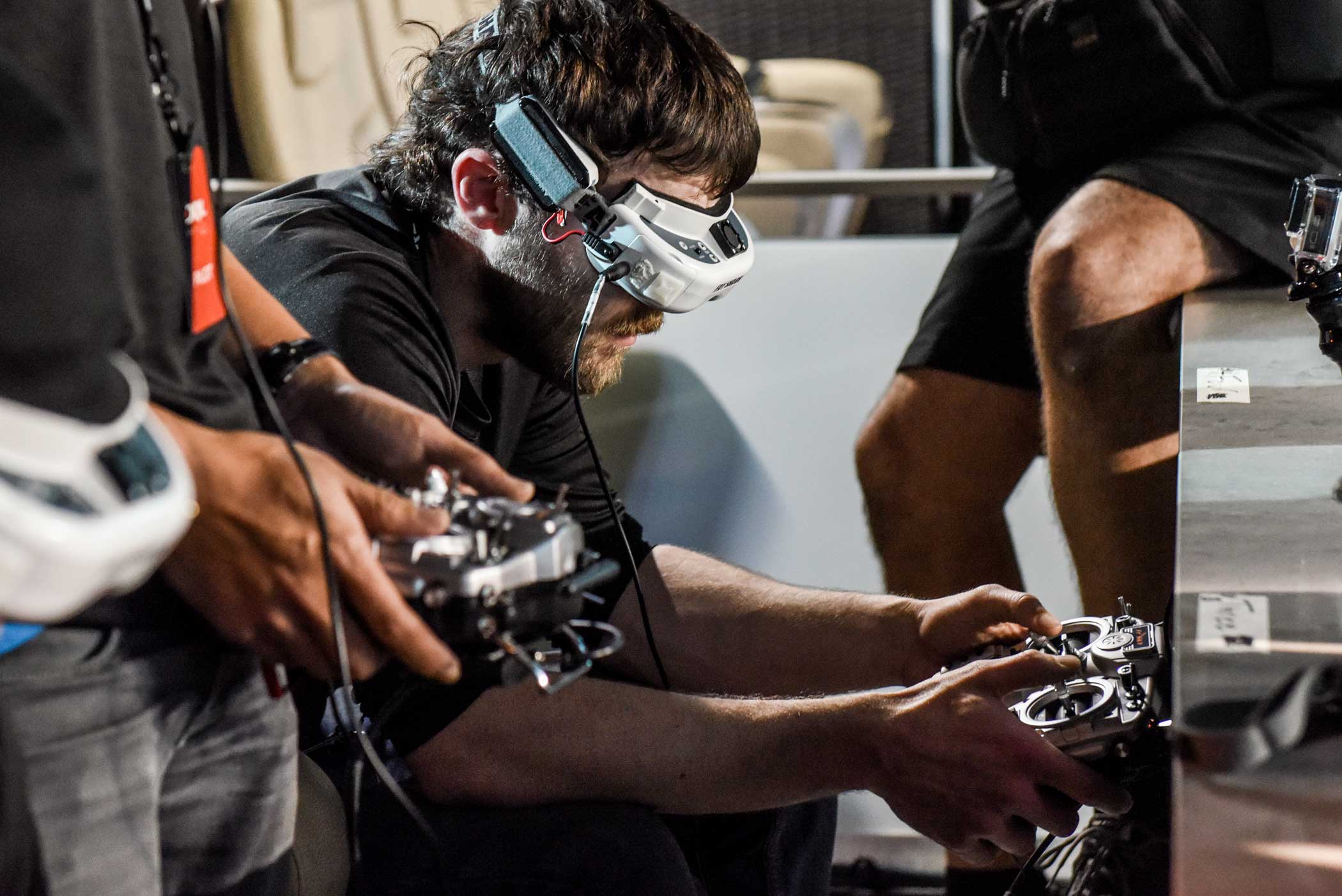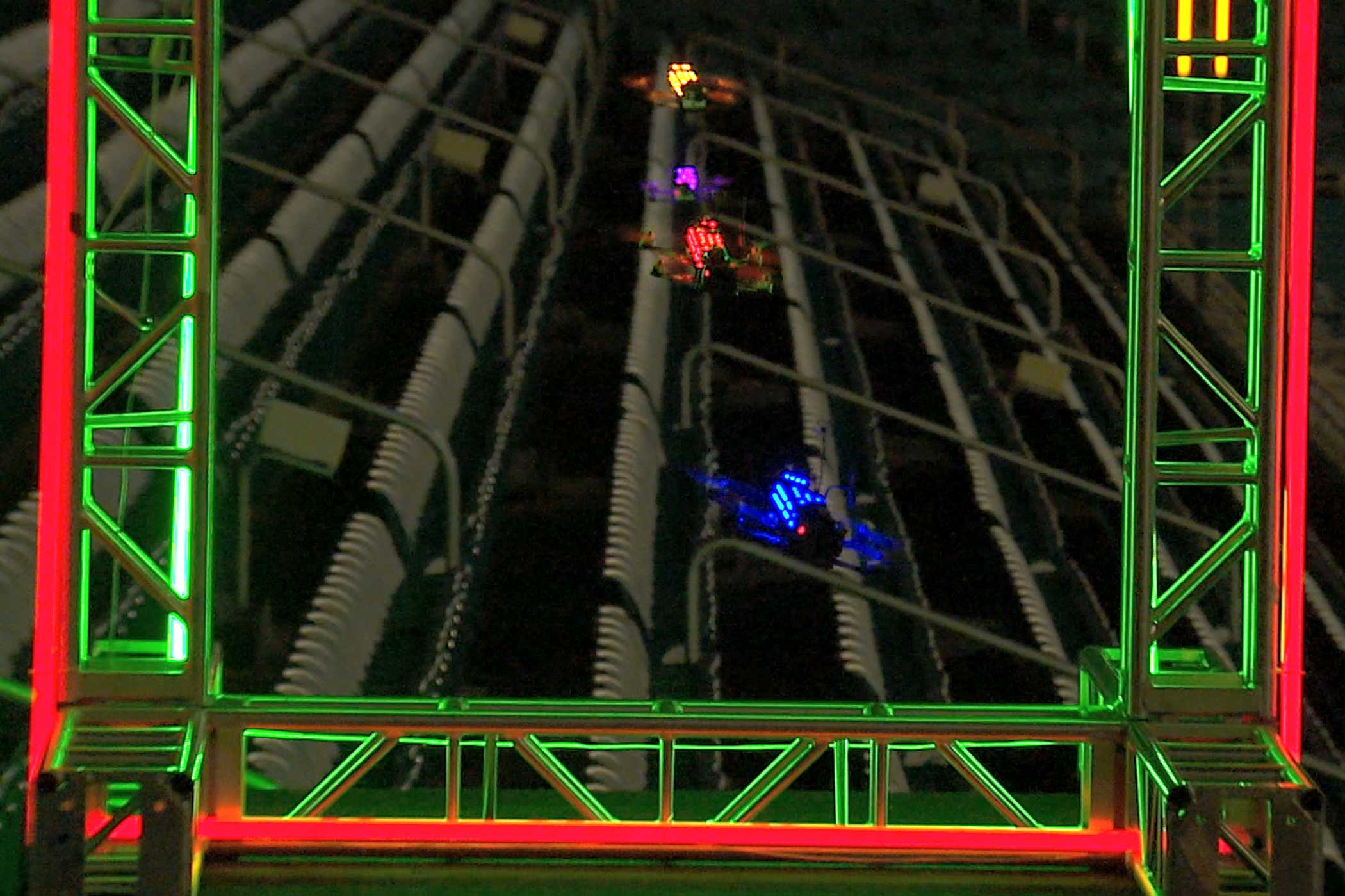Car racing leagues like NASCAR get lots of slack for being boring. For outsiders, it’s tough to see the fun in watching people drive in circles again and again — even if they’re doing it at 160 miles an hour within an inch of one another.
But what if the vehicles racing against one another weren’t cars, but flying robots? That’s the idea behind drone racing, where pilots twist, turn and flip their tiny aircraft around complex courses. All this, while their body stays put thanks to special goggles that deliver a first-person view from their drone’s camera.

Drone hobbyists have been racing their aircraft for a few years now. But the sport is about to get a big boost. A new group, the Drone Racing League, is pulling together the world’s top drone pilots for a five-race season culminating in a world championship event. The DRL’s first regular season race is set for Feb. 22 at Miami’s Sun Life Stadium. Ordinarily, Sun Life is home to football’s Miami Dolphins. (Dolphins owner Stephen Ross is an investor in the league.) But the DRL is set to trick it out for high-octane drone racing, building a hybrid outdoor-indoor racing circuit along with radio equipment to make it all possible.
For now, drone racing has a decidedly narrow audience. But Nicholas Horbaczewski, CEO of the Drone Racing League, sees a roadmap in the growth of competitive video gaming, estimated to generate nearly $2 billion in annual revenue by 2020. That industry makes money through sponsorships, advertising and ticket sales. “We look at what e-sports is doing and say, you know, there’s a lot of different ways this could evolve, there’s a lot of different business models for this,” says Horbaczewski.

There are plenty of challenges ahead for drone racing. Video footage from the Drone Racing League, seen above, is inarguably fun to watch. But there’s no guarantee that lots of people will tune in to watch drones flip and roll and crash into one another at blazing fast speeds. On top of that, Horbaczewski and his team are taking on two big challenges at once: building a sport, and building a business. Still, he’s optimistic about his chances.
“Right now, we need to develop the sport, we need to develop the technology, we need to build a fan base, make them aware of what’s going on, make them care about the pilots and the results,” says Horbaczewski. “I think once you’ve done that, there’s a lot of ways sports can evolve.”
More Must-Reads from TIME
- Caitlin Clark Is TIME's 2024 Athlete of the Year
- Where Trump 2.0 Will Differ From 1.0
- Is Intermittent Fasting Good or Bad for You?
- The 100 Must-Read Books of 2024
- Column: If Optimism Feels Ridiculous Now, Try Hope
- The Future of Climate Action Is Trade Policy
- FX’s Say Nothing Is the Must-Watch Political Thriller of 2024
- Merle Bombardieri Is Helping People Make the Baby Decision
Contact us at letters@time.com